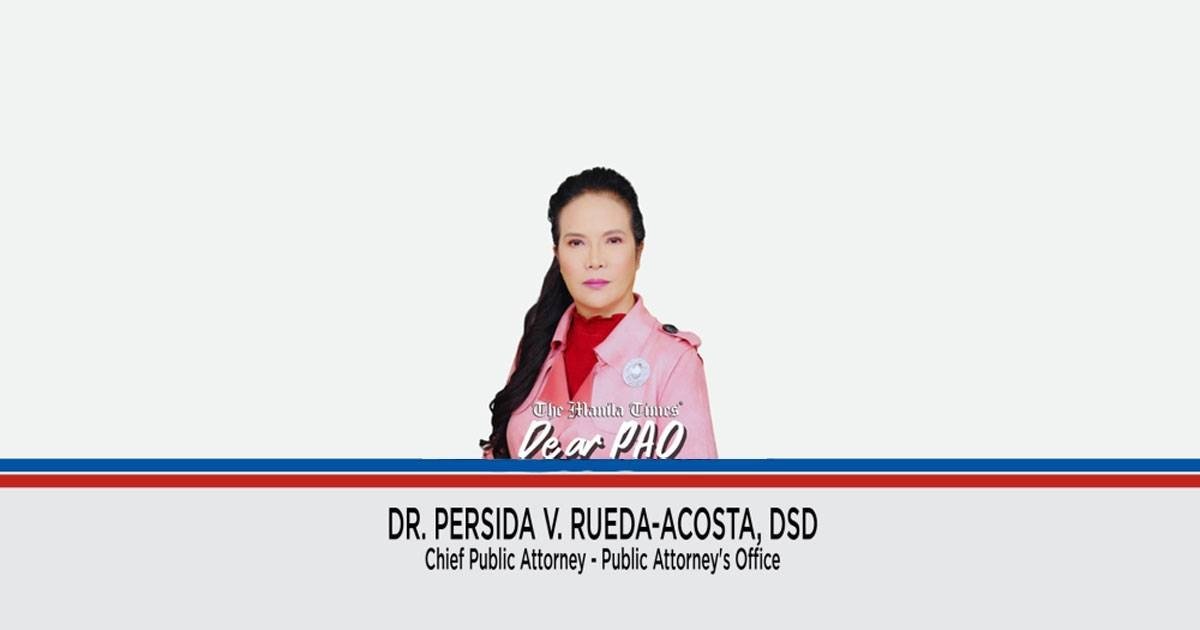
Dear PAO,
In 2019, my mother borrowed P500,000, evidenced by a contract of loan. Unfortunately, she died before she could fully pay. She was only able to pay P100,000. She did not leave any property nor any money for us to inherit. The creditor is arguing that my sister and I should pay the remaining P400,000 because we are her children. I just want to know if he can obligate us to pay the debt that our mother contracted.
Gabby
Dear Gabby,
There are several provisions in the New Civil Code regarding the obligation of an heir. Articles 774, 776, and 1311 of the said Code provide that:
“ARTICLE 774. Succession is a mode of acquisition by virtue of which the property, rights and obligations, to the extent of the value of the inheritance, of a person are transmitted through his death to another or others either by his will or by operation of law
“ARTICLE 776. The inheritance includes all the property, rights and obligations of a person which are not extinguished by his death.
“ARTICLE 1311. Contracts take effect only between the parties, their assigns and heirs, except in case where the rights and obligations arising from the contract are not transmissible by their nature, or by stipulation or by provision of law. The heir is not liable beyond the value of the property he received from the decedent.” (Emphasis supplied)
First, it is important to clarify who the heirs of a deceased person are. Based on the provisions of the law, the legitimate children of a deceased person are considered as one of the compulsory heirs.
The heirs would be entitled to inherit the property and rights of the deceased person, or in your case, the rights and property of your mother. However, it is clear from the provision of the law that the heir would not only inherit the property and rights of the parent but also their obligations, which are not extinguished by death. Based on law and jurisprudence, generally, the death of the debtor would not extinguish the obligation to pay the amount due to the creditor.
Therefore, as heirs of your mother, all her property, rights and obligations, which are not extinguished by her death, would be passed onto you and your sister.
Second, as to the liability of the heir, the law is clear that the obligation that might pass onto the heir would be limited only to the value of the inheritance that the heir might inherit if the deceased person has rights and property. It means that the heir would not be liable for the amount that would exceed the value of the property and rights that he or she might have inherited.
Applying these provisions of the law to your case, you may not be liable for the unpaid amount from the debt contracted by your mother because, based on the facts, you did not inherit any money, rights or properties from your mother as she did not leave any estate for you to inherit. Therefore, the creditor of your mother could not obligate you and your sister to pay the balance of P400,000 from the debt that your mother contracted when she was alive.
We hope that we were able to answer your queries. This advice is based solely on the facts you have narrated and our appreciation of the same. Our opinion may vary when other facts are changed or elaborated.
Editor’s note: Dear PAO is a daily column of the Public Attorney’s Office. Questions for Chief Acosta may be sent to [email protected]







